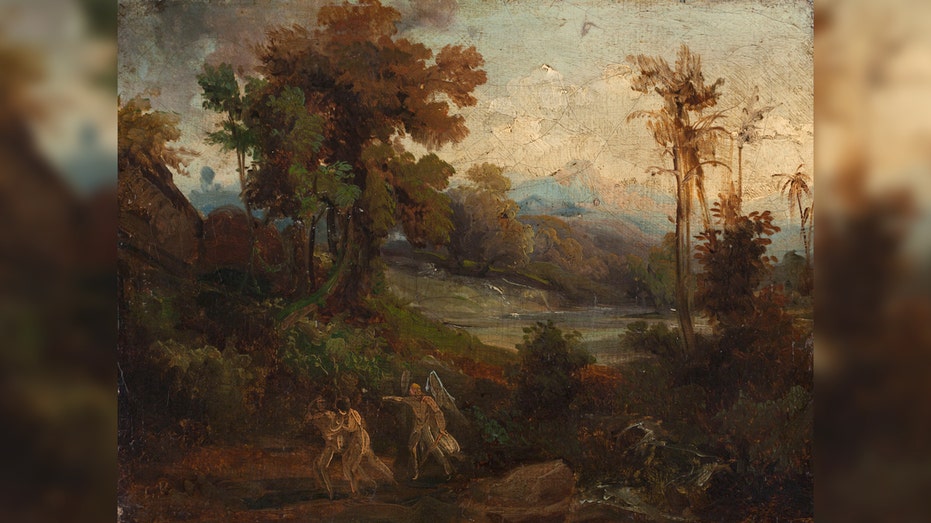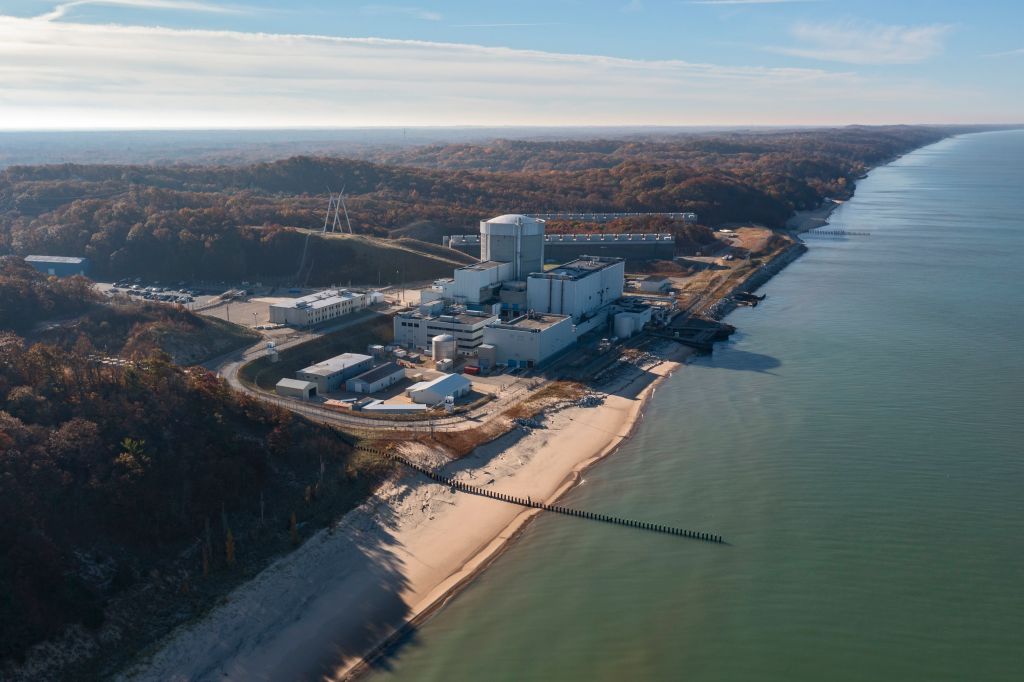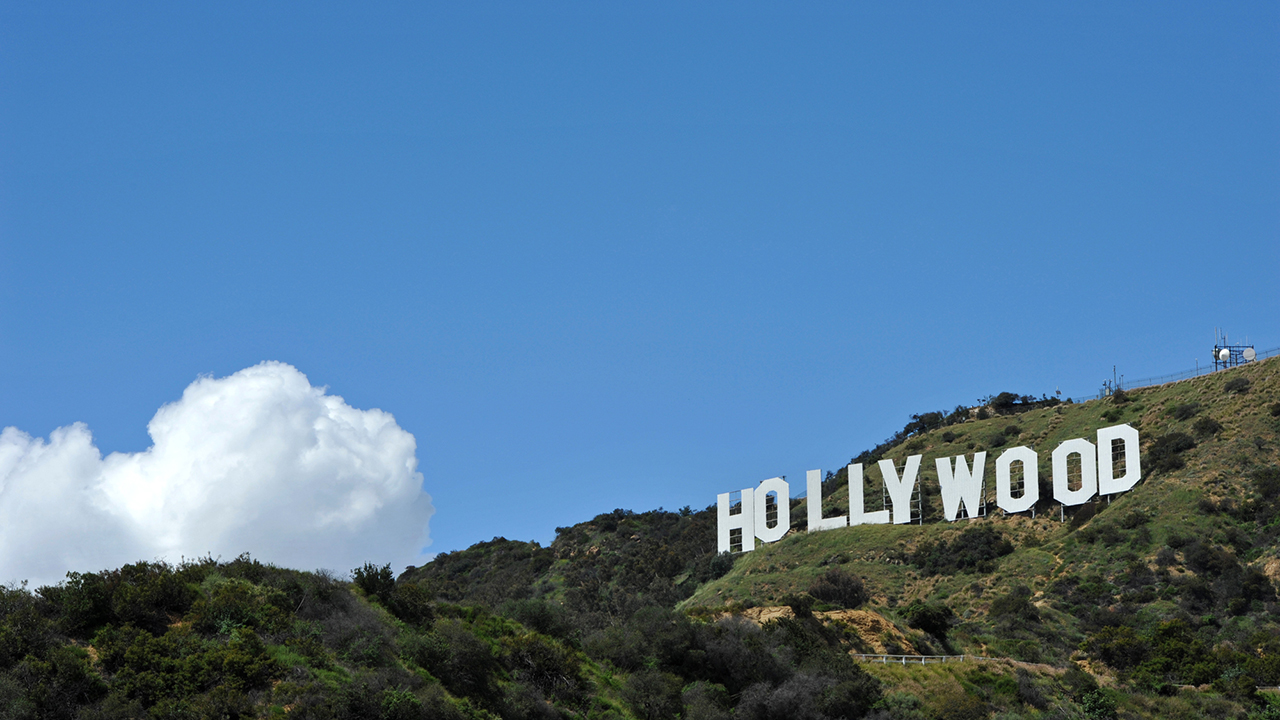Garden of Eden's true location 'can only be' at unusual tourist landmark, new argument claims
In a recent article, a computer engineer presents the unconventional argument that the true location of the biblical Garden of Eden lies beneath a popular Egyptian landmark.

A researcher has made a bold claim about the true location of the biblical Garden of Eden, positing that the mythical location is actually at a well-known site.
Konstantin Borisov, Ph.D., who specializes in computer engineering, claimed in a recent article in the journal Archaeological Discovery that the true location of the Garden of Eden, where Adam and Eve lived, was near the Great Pyramid of Giza.
The pyramids date back to roughly 2600 B.C., more than 1,000 years after the first chapter of Genesis takes place.
HISTORIC MARYLAND CHURCH OPENS DOORS TO VISITORS 320 YEARS AFTER CLOSING DOWN
Borisov extensively consulted biblical and medieval texts to support his argument – and to understand his claim, one must go back to the Bible to see what is said about the location of the legendary garden.
The Bible states, "And a river went out of Eden to water the garden; and from thence it was parted, and became four heads. The name of the first is Pishon; that is it which compasseth the whole land of Havilah, where there is gold; and the gold of that land is good; there is bdellium and the onyx stone."
The verse continues, "And the name of the second river is Gihon; the same is it that compasseth the whole land of Cush. And the name of the third river is Tigris; that is it which goeth toward the east of Asshur. And the fourth river is the Euphrates."
The locations of Pishon and Gihon are unknown — but the Euphrates and Tigris rivers run through modern-day Iraq.
As such, most Bible-believing scholars point toward that region as the most plausible location of Eden.
But Borisov claims that the Gihon is actually the Nile, echoing the view of Jewish-Roman historian Flavius Josephus.
The expert claims, after consulting a reconstructed map of the Earth in 500 B.C., "it becomes apparent that the only four rivers emerging from the encircling Oceanus are the Nile, Tigris, Euphrates, and Indus."
For more Lifestyle articles, visit foxnews.com/lifestyle
Borisov goes on to claim the Great Pyramid of Giza was built near the former location of the Tree of Eternal Life.
He cites a simulation in which a blast inside the King's chamber of the Great Pyramid of Giza ends up creating an electric field that influences the movement of charged particles – and resembles a tree-like pattern.
"It is essential to emphasize that this curved form is distinctive and can only be achieved through a combination of the pyramid-shaped structure and the electric force exerted on the charge carriers by the beam-shaped object," the computer scientist says in the paper.
"Given that the Great Pyramid features a pyramid shape and granite beams, it distinctly positions the Great Pyramid as the only structure in the world capable of producing the image seen in Figure 8."
Borisov also references the Garden of Eden's location on a sacred mountain, which he believes is related to the Great Pyramid of Giza.
"In ancient cultures, Egyptian, Akkadian, Assyrian, Babylonian, Indian, Persian, Chinese, and Greek, there existed a concept of the sacred mountain of the world upon which the tree of life was believed to be situated," the researcher writes. "This discussion ultimately leads to the conclusion that the sacred mount, where the tree of life is said to reside, can only be the Great Pyramid of Giza."
CLICK HERE TO SIGN UP FOR OUR LIFESTYLE NEWSLETTER
"Additionally, the location of Eden is specifically pinpointed to Giza, as no other structure worldwide encapsulates the significant characteristics outlined above."
Borisov adds that the Great Pyramid of Giza "certainly fulfills" the notion of immortality ascribed to Adam by God.
"As for the immortality ascribed to Adamah by God, the Great Pyramid of Giza certainly fulfills this notion with its remarkable endurance and structural integrity, still evident today, long after its construction," he writes. "The monument was undoubtedly designed and built for longevity in mind."
He also notes that "the Genesis account of Adamah living for 930 years before its supposed demise (possibly in our recent history) could imply that the pyramid, after such a long period of service, might have ceased to fulfill its primary function or failed."
Most biblical experts still point toward southern Iraq's marshes, near the Tigris and Euphrates rivers, as the most plausible location for the garden.
What's Your Reaction?



















































































